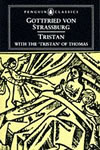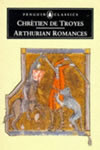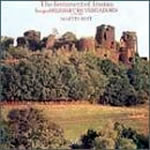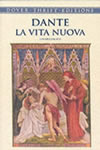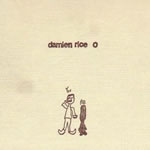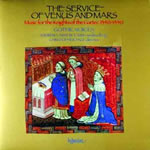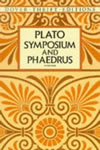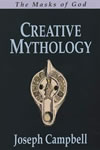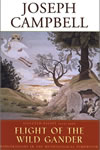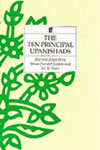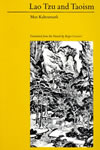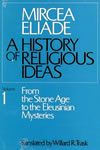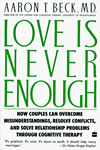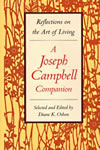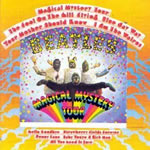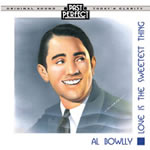At long last, Science has proven that love truly exists. Infatuation transforms body chemistry in measurable ways. The brain regions from which criticism emanates take a vacation. That walking-on-air feeling stems, in fact, from the giddying rush of testosterone and the fluctuation of serotonin levels (according to ‘Love, the great gender bender’, New Scientist, 8 May 2004).
These neuronal ticklings must have existed in the earliest homo sapien, who after all shared our brain chemistry, but the romantic love of our present culture does not stretch back to prehistory. There are no hearts pierced by arrows scribed into the rock at Lascaux or Altamira. Love as we now construe it burst into the European world as chevalerie, or chivalry, in the eleventh century. Of itself, the word actually means a horserider, or chevalier, which shows the class who first felt the dainty sentiment of amor. The height of civilization at the time was Islamic Spain, where poets harked back to the Hebrew Psalms, and an exceptional human love given as a metaphor for the love of God. This poetry of love rode across the Pyrenees into the French court of Count William of Aquitaine, called the Troubadour, who discarded its religious metaphor, and instead went a wooing with sugared words.
While Normandy’s William the Bastard was brutalising Anglo-Saxons, the lusty Troubadour celebrated amor, the love of a mistress, in his songs or chansons. So, romantic love began its dizzy progress to the very heart of human affairs. The craze became for every knight to find and court his lady love. Of course, brutality was sadly still the order of reality, but the beautiful myths of Tristan and of the Grail knights brought a new representation of love to the world. And in their subtle way undermined the frost that had settled over Christian thought. The institute of marriage remained a business transaction, but courtly love now obsessed the aristocratic world. In their aubades, the minstrels wrote of the longing they felt as they parted at dawn from their illicit true-loves. In its first flush, amor was a cult of adultery. In far more recent times, the ideal of love displaced even the traditional arranged marriage — except of course for the bluest blooded of royal families, who must still find a virgin of the right belief-system. The first love songs are little different from those of our own time, and every generation since has sung its own — from Francis the troubadour, who became a famous saint, to Damien Rice, some of whose fans would doubtless grant him sanctification. In the fourteenth century, Pierre de Molins wrote these recognisable sentiments: ‘A fool’s plans often come to naught; Alas! I am living proof of this proverb, for Love oppresses my body with thoughts and beliefs, and breaks my heart; thus I must endure bitter sadness for you in secret, honoured lady to languish thus in a strange country.’Amor makes a fool of reason, and reduces the grizzled sage to infancy. It enslaves its addicts, pushing aside every other passion. It is more heady than any drug — alcohol, cocaine and chocolate merely imitate the havoc it wreaks upon the brain cells (‘Love is the drug’, New Scientist, 23 November 2002). Love is the heart’s own drug. Indeed, it heartens — urges courage — and wakes resolve in even the terminally hopeless. Amor can swim oceans and climb above the clouds without oxygen. Or at least faint dizzied in the attempt.
In Plato’s Symposium, sexual, charitable, familial, intellectual (or platonic) love and the love of a spouse are discussed. Chaste Christians spoke of the purity of agape —where they awaited the downrush of the Holy Spirit — or of caritas: translated as ‘charity’ where St Paul elegantly poeticized the tinkling of bells and the faith that moves the mountains. Debauchees celebrate the love called eros, and in many cults have professed its transformative power. Amor was long the kitchen-sink cousin — fêted as a pretty, but rather tawdry, relative of these grander affairs. In Joseph Campbell, amor gained a potent champion who promoted its spiritual virtues, and raised it to a par with the other more exalted forms of love.Through romantic love, Campbell felt that the ego-abandonment long vaunted by metaphysicians could be simply and directly achieved. Instead of years of starving, staring or chanting, the adept could in a moment transcend the trivial self — that vainglorious obstacle to enlightenment — and achieve the poverty of spirit for which the mystics yearn. This rapture is the very moment where Beatrice’s beauty pierces Dante’s heart, where Romeo and Juliet’s glances first entwine.
Through amor the self is lifted to the service of something infinitely more important — the beloved. It could easily be suggested that the love some feel for God or humanity, for their leader or their football team, are extensions of this dedication. Freudians might argue that amor itself is an extension of the infantile relationship to the mother. But Freudians never fall in love, so how are they to know? Jung saw infatuation as a projection into the beloved of idealized characteristics from an inborn archetype. Smart chap, but how to cage that giddy feeling with the comparative sobriety of words?
Campbell believed that the realization of amor will be the gateway to spiritual understanding for future generations. He rejected the Levantine Father God of Judaism, Christianity and Islam, because that Creator is forever separated and aloof from His creatures. Campbell favoured the Oriental view that we conscious creatures are an extension of the Divinity, in our depths longing only to undo that mournful separation. Heaven is not a place, but a state of mind. The kingdom is within you, as Jesus indeed opined (Luke 17:21). By giving ourselves unselfishly to another human being, in amor, we can learn to give ourselves unselfishly to the great, single Self spoken of in the Upanishads, the Divinity of which in Campbell’s view we are all a part.The Levantine religions rejected the Mother Goddess. Although she is named in the Old Testament — Asherah or Astarte — few now remember that she gave birth to the God of the Semites, having been the focus of worship for many millennia by their ancestors. She was eventually banished from the Hebrew temples in the late seventh century BCE. Some say that she returned to Christianity behind the veil of Mary Virgin, hailed as ‘the mother of God’.
Campbell dates the western suppression of women to the determination that the Great Mother was an ‘abomination,’ by the Hebrews. When the Greek patriarchies overthrew the ancient matriarchies, they arranged marriages between their warrior gods and the conquered goddesses; so the female principle retained its energy. Given our pride at progress, it is hard to admit that women had more rights in Egyptian, Greek and Roman society than they have had through most of the many centuries of Christian belief. The rejection of the one female disciple, Mary Magdalene, points to the continuing subjection of women in Christianity (read more about this in Power and Belief). There is no basis in scripture for the campaign to denigrate the Magdalene. It was the invention of misogynists eager to retain authority for the domination of men.
The original Taoists flew in the face of Chinese custom by exalting the female above the male. The warrior gods had less to offer than Kuan-Yin, mother of compassion, spirit of acceptance and humility. In their philosophy, perfection is achieved by the harmony of active and passive in everchanging continuum. Which is otherwise called love. Indian gods have a female aspect, called the shakti, and described as their power. In truth, all religions seem to trace back to a cult of sun and moon, lingam and yoni (the male and female organs of generation; to put it bluntly). And the complex relationship of love between the Mother Goddess and her consort is this same amor. The resurrection as it existed for millennia before its appropriation to the Christ, came about through the Mother’s love for her consort. Isis brought Osiris back from the dead; as she had and would under their many names in almost every culture throughout human time. Perhaps we are ready to rediscover that love, and the original meaning of resurrection. Love is what is best in us. It has no measure in testosterone, though scientific examination is illuminating, and can only expand our understanding. Many people experience the flush of infatuation without the constancy of true amor. There is even a psychological theory that infatuation — literally, being overtaken by silliness — is the first part of a natural cycle that closes after about seven years. When, presumably, the seven-year itch occurs. Aaron Beck wrote the classic Love is Never Enough, to show how deliberate communication skills can be developed to maintain love. How we can accommodate the returning perceptions post-infatuation, as the critical faculties reawaken.A simple statistic: a study has shown that successful couples have a ratio of five compliments to each criticism. Surely, such couples also accept their partner’s failings as their own, and respond to their partner’s mistakes as they do to their own. Love is a unity with the beloved, where the interests of the partner are paramount — even more important than our own. Any decent parent has experienced this in the desire to take on a child’s pain, rather than having the child suffer it. When love works, your spouse becomes your ‘other half’. A soulmate, rather than a cell-mate.
In The Symposium, Plato attributes a story to the great playwright, Aristophanes, who says that Zeus divided the original over-confident humans that he ruled over. He split each four-legged, four-eyed individual into two, leaving them desperately seeking their lost wholeness in promiscuity. Only when reunited could they be once more powerful: ‘this becoming one instead of two, was the very expression of his ancient need. And the reason is that human nature was originally one and we were a whole, and the desire and pursuit of the whole is called love.’ Campbell’s emphasis upon this wholeness in his own experience is revealed in the marvellous Reflections on the Art of Living.William Blake posited the extremes of love — love seeketh not itself to please and love seeketh only self to please (see The Clod and The Pebble). Surely, in love the beloved becomes more important than the self, and selfishness takes on a new meaning, where the only pleasure of the self is to safeguard and to exalt the beloved. This love is misappropriated in the lonely, who give themselves to fanaticism, so desperate are they to prove their love.
The songsters tell us that what the world needs now is love, or that all we need is love, and perhaps that is the simple truth. But what kind of love do we need? Jesus went so far as to teach even the love of enemies — a terrible shame that he has had so few true followers, and none of them heads of state, for all their sanctimonious genuflections. That Christian love would surely transcend all the love-limiting rules of the pharisees. Who, alas, just like the poor, are with us always. Love is indeed the sweetest thing. It is stimulated from the outside, but its chemistry awaits wihin for that stimulation. Any true lover must realize that the sensations of pleasure attributed to the beloved actually arise internally. Tantric cults and immortalist Taoists capitalize on this, and so sometimes preach an infatuation with the self, without proper regard for the other, the sexual partner who for them becomes simply a vehicle through whom to achieve selfish ends. A horrifying corollary of this attitude came in the 1990s, when a whole Tantric community found itself infected with AIDS, because of a belief in the magical potency of its practices. Campbell points to the personhood of the other, the beloved, the realization of another self outside of my self, which is perhaps the maturity that allows us to leave the infant state of selfish sociopathy.Existence has meaning only because of love. Take away our pleasure in the world, our affections, and the world is empty. Feel love for a moment, and in that moment the whole universe is filled with delight. The phlegmatic or emotionless personality is not fully human. In the same way, the emotion-ridden are not fully human either. Love must fulfill both the emotional and the rational. Love is without reservation or neurosis. Love is aesthetic, but teaches that the world is according to the glasses through which we look. There is nothing wrong with looking at the world through rose-tinted glasses; how much better than grey? Of course, Science has yet to develop a suitable eye-chart to test this hypothesis.
There is no meaning of love, because love is itself the meaning.
January 2005
